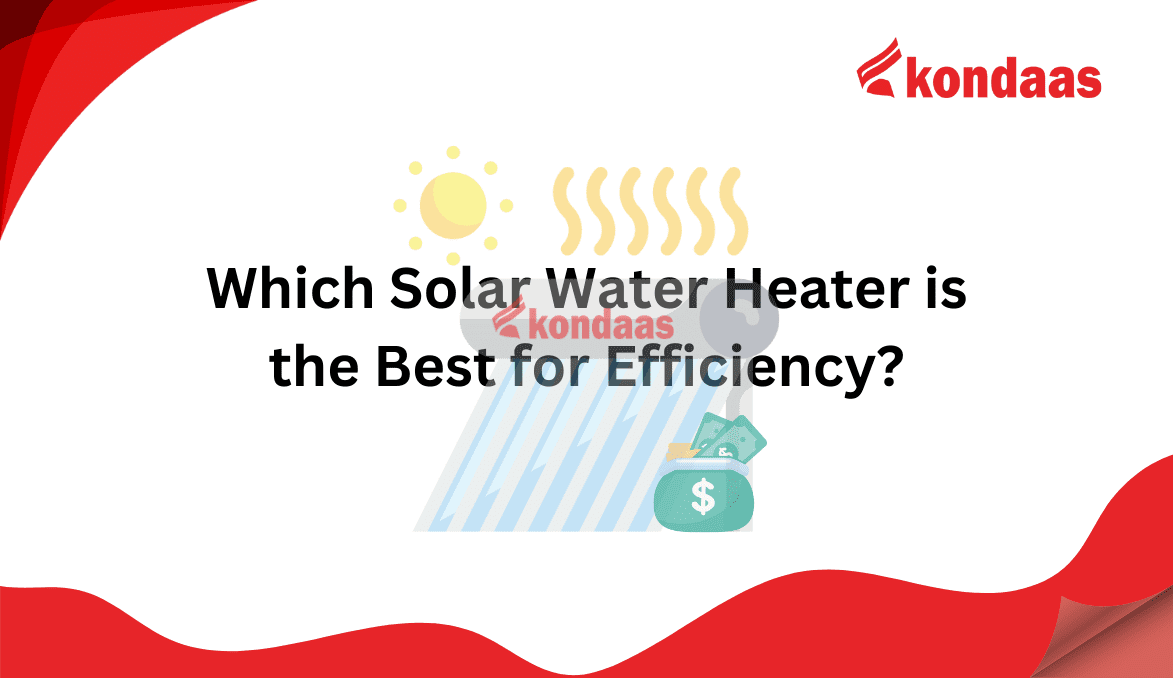When choosing a solar water heater for your home or commercial setup, the decision often boils down to two main technologies, Evacuated Tube Collectors (ETC) and Flat Plate Collectors (FPC). While both types of solar water heaters use the sun’s energy to heat water, their efficiency, design, and suitability can vary significantly.
Let’s break down the details so you can make a smart, cost-effective, and performance-driven decision.
Types of Solar Water Heater Systems
Before diving into comparisons, it’s important to understand the two most widely used types of solar water heaters:
- Flat Plate Collectors (FPC) – Traditional and cost-effective, using metal plates to absorb solar heat
- Evacuated Tube Collectors (ETC) – Modern and efficient, using vacuum-insulated tubes to maximize heat retention
Each system has its strengths and ideal use cases. Your choice depends on factors like climate, water usage, and budget.
What is an Evacuated Tube Collector?
An Evacuated Tube Collector consists of multiple glass tubes, each with a vacuum inside. This vacuum acts as insulation and dramatically reduces heat loss, allowing the system to function effectively even in cold or cloudy conditions.
How It Works:
- Each glass tube contains a heat pipe surrounded by vacuum-sealed borosilicate glass
- The vacuum layer prevents heat from escaping, ensuring more energy is retained
- Heat is transferred to the water through a manifold and circulated into a storage tank
Benefits of ETC systems:
- Excellent performance in cold or diffused sunlight
- Higher thermal efficiency
- Minimal heat loss, even in freezing temperatures
Flat Plate Collectors (FPC): How Do They Work?
Flat Plate Collectors are made of a dark-colored absorber plate, metal tubes, and an insulated frame covered with toughened glass.
Key Components:
- Absorber Plate: Typically made of copper or aluminum
- Piping: Carries the heated water or antifreeze solution
- Casing: Provides insulation and weather protection
Advantages of FPC:
- Budget-friendly installation
- Reliable in regions with consistent sunshine
- Long-lasting with proper maintenance (up to 25 years)
Difference Between ETC and FPC Solar Water Heater
If you’re choosing between an ETC vs FPC solar water heater, here’s a clear point-by-point comparison to help you decide:
- Efficiency
- ETC: Offers up to 163% better heat transfer
- FPC: Moderate efficiency ranging from 40% to 80%
- ETC: Offers up to 163% better heat transfer
- Weather Adaptability
- ETC: Performs exceptionally well in cold and cloudy weather
- FPC: Best suited for sunny and stable climates
- ETC: Performs exceptionally well in cold and cloudy weather
- Cost
- ETC: Slightly higher initial investment
- FPC: More budget-friendly and widely available
- ETC: Slightly higher initial investment
- Maintenance
- ETC: Easy to clean with minimal upkeep
- FPC: Durable but may require more roof space and attention
- ETC: Easy to clean with minimal upkeep
- Lifespan
- ETC: Typically lasts 15–20 years
- FPC: Long-lasting with 20–25 years of service life
- ETC: Typically lasts 15–20 years
Solar Tube Water Heater: A Closer Look
The term solar tube water heater typically refers to ETC systems. They are designed for households that need a steady supply of hot water even during colder seasons or cloudy days.
Why they’re gaining popularity:
- Higher efficiency in winter
- Compact and easy to install
- Suited for modern rooftops with space constraints
These systems are ideal if you want reliable heating without relying on electrical backup.
Key Factors to Consider Before Choosing
Here’s what to keep in mind when selecting between ETC and FPC:
1. Climate
If you live in a cold or cloudy region, ETC is a better fit. For hot, sunny regions, FPC systems are sufficient and affordable.
2. Hot Water Demand
For high daily usage (like in hotels or large families), ETC offers faster heating and better performance during early mornings and winters.
3. Roof Space
FPCs generally need more surface area, while ETCs can be more compact.
4. Budget
If you’re cost-sensitive, FPC can be a solid start. However, for long-term savings and better energy efficiency, ETC is worth the investment.
How Efficient Are Different Types of Solar Water Heaters?
ETC systems typically offer up to 163% better thermal efficiency than FPCs. That means quicker heating, better retention, and less dependency on electrical backup.
FPCs, while slightly less efficient, are still capable of meeting most domestic water heating needs effectively, especially in regions with stable and strong sunlight throughout the year.
What’s the Lifespan of Solar Water Heating Systems?
- ETC systems can last 15 to 20 years, provided the tubes are protected and serviced occasionally.
- FPC systems can easily last 20 to 25 years with regular maintenance.
Longevity also depends on water hardness, system quality, and installation precision. Always choose systems backed by warranty and good service support.
Choosing the Right Partner for Installation
The effectiveness of your solar water heater isn’t just about the system, it’s also about who installs it.
If you’re searching for reliability, after-sales support, and long-term performance, trust only the best solar company in Tamilnadu to guide your purchase and install your system with precision.
Final Thoughts: ETC or FPC What Should You Choose?
- Pick ETC if you need maximum performance, especially during winters or in hilly regions.
- Choose FPC if you want a cost-effective, long-lasting system and live in a sunny, warm climate.
Both options are environmentally friendly, reduce electricity bills, and help you cut your carbon footprint, it’s just about finding the right fit for your lifestyle and weather.
Frequently Asked Question
1. What makes ETC more efficient than FPC?
ETC systems use vacuum insulation to minimize heat loss, making them up to 163% more efficient in transferring heat.
2. Can FPC work in cold weather?
FPCs are less efficient in cold or cloudy conditions due to higher heat loss.
3. What factors should I consider when choosing a solar water heater?
Assess your hot water needs, local climate, installation space, and budget to make an informed decision.

